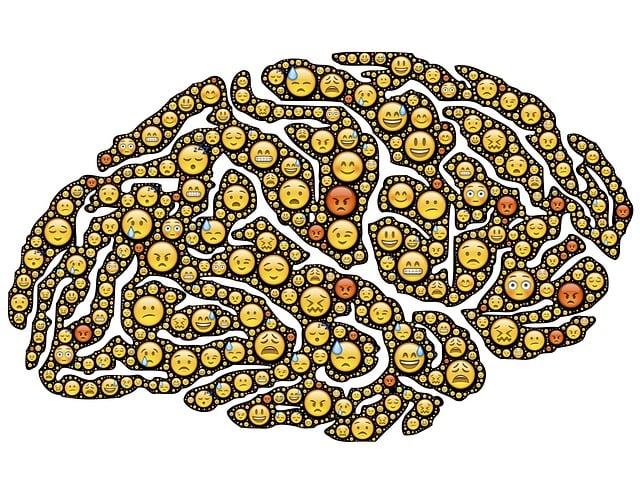Northglenn Gambling Therapy offers a holistic approach to mental well-being through its RFM framework, focusing on recovery, flexibility, and mastery. This specialized care addresses gambling addiction while building resilience through evidence-based practices, trauma support, and tailored coping strategies. Their comprehensive program incorporates individual therapy, group support, and ongoing assessments to track progress, fostering lasting personal growth and improved emotional well-being.
“Resilience is a powerful tool in navigating life’s challenges, and RFM (Recovery Capital Framework) offers a structured approach to building this strength. This article explores how Northglenn Gambling Therapy leverages RFM principles to enhance resilience. We’ll delve into the program’s overview, its focus on personal growth through targeted exercises, and methods for measuring success. By understanding these components, individuals seeking support can recognize the potential benefits of Northglenn Gambling Therapy in their journey towards a more resilient mindset.”
- Understanding RFM and Its Role in Resilience Building
- Northglenn Gambling Therapy: An Overview
- Implementing Resilience Exercises for Personal Growth
- Measuring Success and Continuing Support
Understanding RFM and Its Role in Resilience Building

Resilience is a critical component of mental well-being, enabling individuals to cope with challenges and adversity. This is where RFM (Recovery, Flexibility, and Mastery) steps in as a powerful framework. Northglenn Gambling Therapy recognizes the significance of RFM in fostering resilience, particularly for those facing addiction or compulsive behaviors. By understanding one’s recovery journey, cultivating flexibility in response to setbacks, and embracing a sense of mastery over life, individuals can build mental fortitude.
This approach encourages self-esteem improvement by focusing on personal growth and achievement. It involves developing strategies for effective risk management planning for mental health professionals, which is essential for both personal and professional development. Moreover, conducting regular risk assessments for mental health professionals helps identify potential triggers and vulnerabilities, allowing for proactive measures to enhance resilience.
Northglenn Gambling Therapy: An Overview

Northglenn Gambling Therapy offers specialized support for individuals struggling with gambling addiction, a problem that significantly impacts their emotional well-being and overall quality of life. This therapy program recognizes the unique challenges faced by gamblers and employs evidence-based approaches tailored to promote recovery and self-esteem improvement. The treatment facilitates clients’ understanding of their addiction, provides coping strategies, and equips them with resilience-building exercises to navigate triggers effectively.
The therapeutic environment at Northglenn Gambling Therapy is culturally sensitive, acknowledging the diverse backgrounds and experiences of its clients. This approach ensures that the treatment plans are inclusive and address specific cultural considerations, fostering a supportive atmosphere conducive to healing. By combining individual therapy sessions with group support, Northglenn Gambling Therapy facilitates emotional well-being promotion techniques, enabling participants to regain control over their lives and develop lasting strategies for overcoming gambling addiction.
Implementing Resilience Exercises for Personal Growth

Resilience exercises play a pivotal role in personal growth, especially for individuals navigating challenging life situations. These practices are designed to help people develop coping mechanisms and enhance their ability to bounce back from adversity. At Northglenn Gambling Therapy, we understand that building resilience is essential for mental health awareness and stress reduction methods. By incorporating various trauma support services into our programs, we empower folks to confront and overcome emotional barriers.
Through dedicated exercises, individuals can learn to manage stress, cultivate a positive mindset, and develop strategies to cope with difficult emotions. This proactive approach not only enhances overall well-being but also equips people with tools to navigate life’s twists and turns. By investing in resilience building, one can foster indelible personal growth and create a lasting impact on their mental health journey.
Measuring Success and Continuing Support

Measuring success is a crucial aspect of any therapeutic journey, and resilience-building exercises are no exception. At Northglenn Gambling Therapy, we employ various methods to track progress and ensure our clients achieve long-lasting benefits. This includes self-assessment tools and regular check-ins with therapists who guide individuals through the process, offering valuable insights and adjustments to their self-care routines. By fostering open communication, we help clients identify strengths and areas for improvement in their mental health management.
The path to resilience is an ongoing process, and our commitment to supporting clients extends far beyond initial therapy sessions. We encourage the development of a consistent self-care routine that promotes better mental health. This involves teaching practical skills and fostering a sense of empowerment, enabling individuals to navigate challenges with renewed confidence. Through ongoing support and encouragement, Northglenn Gambling Therapy aims to transform lives, helping clients lead fulfilling and balanced lives.
Resilience is a powerful tool for personal growth, and Northglenn Gambling Therapy (NGT) offers innovative approaches through RFM (Recovery, Flexibility, and Mastery) exercises. By understanding one’s resilience and utilizing NGT’s strategies, individuals can effectively navigate challenges and foster a sense of control. Implementing these exercises promotes personal development, enhances coping mechanisms, and provides a roadmap for long-term success. Measuring progress and continuing support are integral to this process, ensuring individuals stay on track and build a more resilient future.














